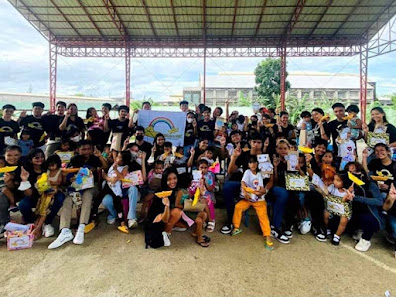Protection to Progress
The Violence Against Women and Their Children Act of 2004, or Republic Act No. 9262, is a Philippine law that protects women and their children from violence and abuse in every form. It was enacted on March 8, 2004, to comprehensively provide a legal framework aimed at addressing all sorts of physical, sexual, psychological, and economic abuse that is committed by a partner or a person with a relationship with the victim-whether spouse, ex-spouse, live-in, or even just a date. The law recognizes the special vulnerabilities of women and children, and its aim is their protection through preventive and remedial measures, including Protection Orders, filing of criminal cases, and provision of support services.
This law also focuses on the State's role in ensuring that justice is served to victims. It mandates numerous institutions, such as the police, health care providers, and local government units to immediately extend assistance and help protect the rights of a victim. The penalty provided for the offender may even range from imprisonment to even fine depending on the intensity of the offense. As well, RA 9262 tries to empower the women through public awareness, support programs, ensuring legal remedies are available and made accessible for them to resume their lives free from abusive acts.The Violence Against Women and Their Children Act of 2004, or Republic Act No. 9262, is a Philippine law that protects women and their children from violence and abuse in every form. It was enacted on March 8, 2004, to comprehensively provide a legal framework aimed at addressing all sorts of physical, sexual, psychological, and economic abuse that is committed by a partner or a person with a relations
hip with the victim-whether spouse, ex-spouse, live-in, or even just a date. The law recognizes the special vulnerabilities of women and children, and its aim is their protection through preventive and remedial measures, including Protection Orders, filing of criminal cases, and provision of support services.
The Anti-Rape Law of 1997, Republic Act No. 8353, is a landmark legislation in the Philippines that defined and strengthened laws against rape. It was enacted on September 30, 1997, and it further expanded the definition of rape from being a mere crime against chastity to a crime against persons, with more emphasis on the violation of the dignity and integrity of the victim. The law transformed rape from a private crime into a public one, affording greater legal redress to the victims and the opportunity for anyone with information about the crime to make a complaint on behalf of the victim. This development indicated that the State was intent on protecting individuals against sexual violence. Rape no longer refers to sexual intercourse between a man and a woman without the consent of the latter under this law. This would include sexual violation with objects or other bodies, which, as done, is considered a gross violation of human dignity as well. This law indicates situations where the consent might be invalidated like through force and intimidation, and also a deprivation of reason and even among unconscious or when the party is under substance influence. Marital rape is explicitly addressed, removing the presumption of automatic consent within marriage and holding spouses accountable for sexual violence. The Anti-Rape Law of 1997 imposes severe penalties, including life imprisonment for convicted offenders. It also outlines aggravated circumstances, such as when
the victim is under 18 years old or if the perpetrator has authority over the victim, which result in harsher punishments. The law is progressive since it recognizes the complexity of rape and provides justice for the victims, legal protection, and support services. This law was a stride forward in the Philippines to fight sexual violence. The Safe Spaces Act (Republic Act No. 11313), also known as the Bawal Bastos Law, was enacted in the Philippines in 2019 to address all forms of gender-based sexual harassment in both public and private spaces. The law covers a wide range of acts, including catcalling, wolf-whistling, unwanted advances, online harassment, and workplace harassment, among others. It tries to provide safer environments through the imposition of penalties on offenders and promoting respect and equality. It highlights the role of institutions, employers, and local government units in preventive measures, information dissemination, and providing assistance to victims. The Safe Spaces Act seeks to ensure that all citizens, irrespective of their gender, live free from fear and discrimination by addressing harassment in the streets, at workplaces, schools, and even online platforms.
References:
Chi, C. (2023, May 16). House urged to pass law penalizing “electronic” violence against women. Philstar.com. https://www.google.com/amp/s/www.philstar.com/headlines/2023/05/16/2266759/house-urged-pass-law-penalizing-electronic-violence-against-women/amp/
Sld, B. (2023, April 3). Introduction to the Anti-Rape (Investigation & Trial) Act, 2021 (part 1) – SLD. https://sld.com.pk/2023/04/03/introduction-to-the-anti-rape-investigation-trial-act-2021-part-1/
Gotadeleche. (2022, November 18). Safe Spaces Act: Bawal Bastos Law - Gota de Leche Manila. Gota De Leche Manila. https://www.gotadeleche.ph/safe-spaces-act-bawal-bastos-law/





Thank you for sharing us these laws, let's unite to end the violence against women.
ReplyDelete